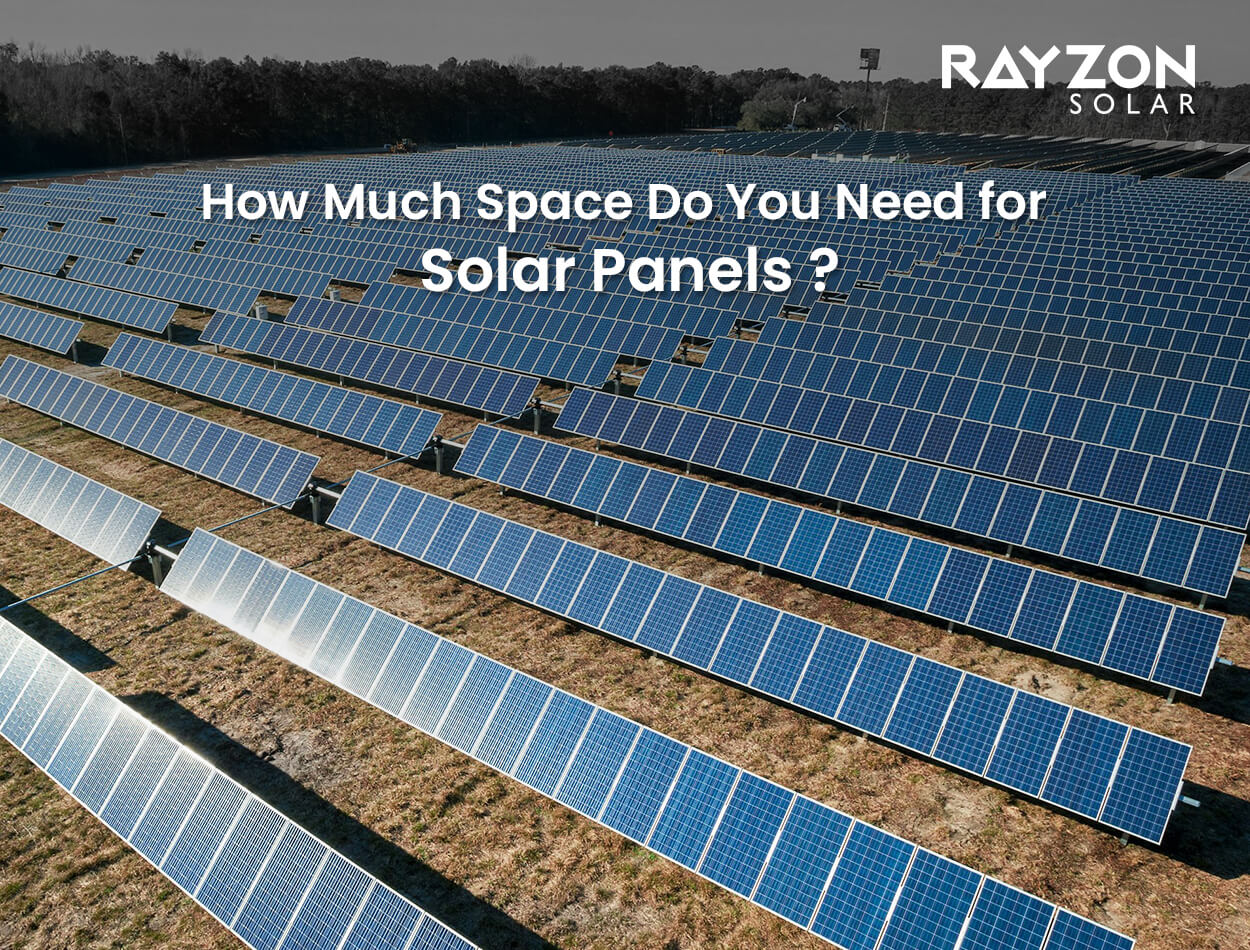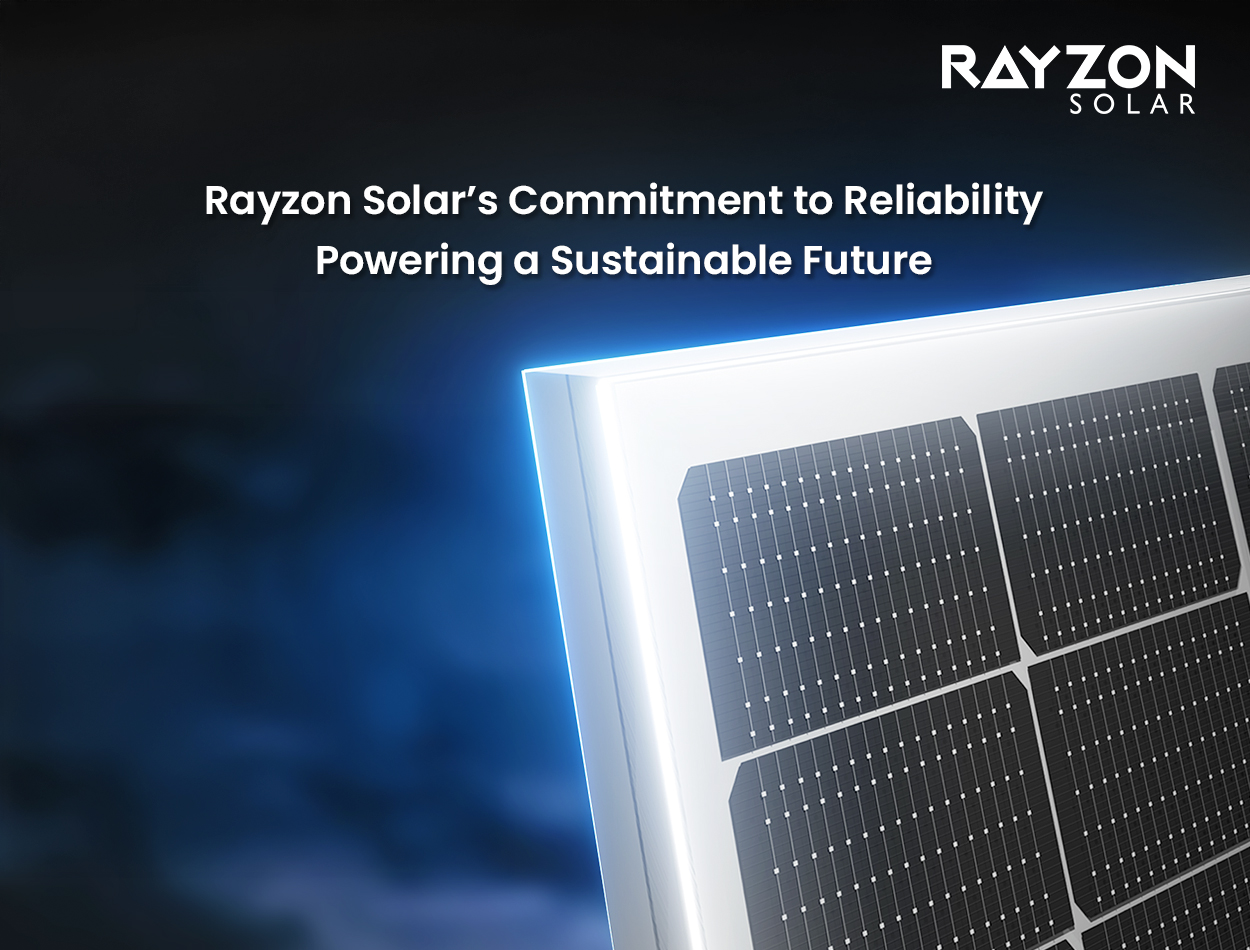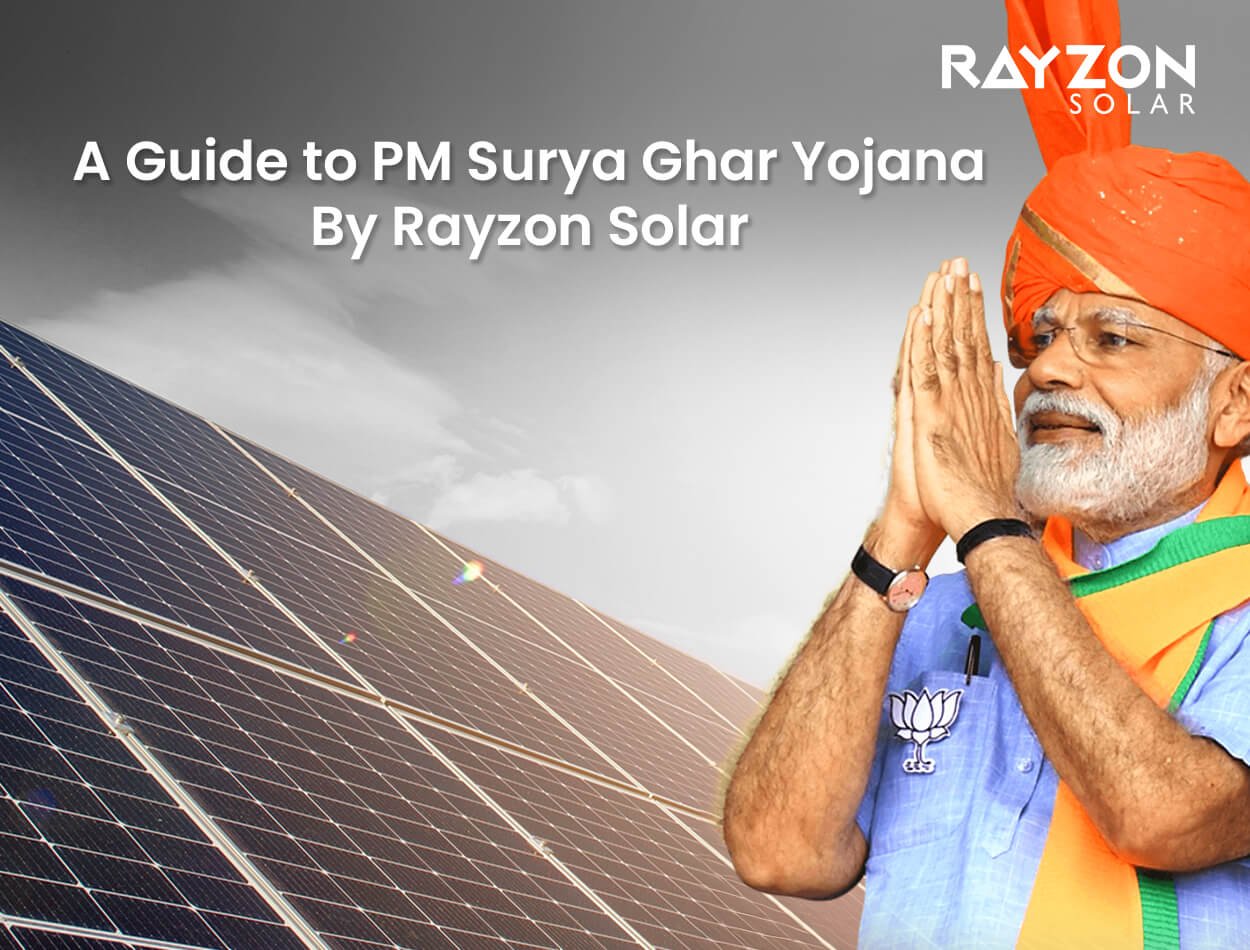
How Much Space Do You Need for Solar Panels in Commercial Solar Projects?
In today's era of renewable energy, solar power stands out as a shining light of sustainability and innovation. As the world pivots towards greener alternatives, businesses are increasingly turning to solar energy to meet their power needs while reducing their carbon footprint. However, one of the fundamental questions that arises when considering solar installations for commercial projects is, "How much space do you need for solar panels?" In this comprehensive guide by Rayzon Solar, we'll delve into the factors that influence space requirements for solar panels in commercial settings and provide valuable insights for businesses looking to embrace solar power.
Rayzon Solar, a top solar panel manufacturer in India, is renowned for its commitment to excellence and innovation in the solar energy industry. With a track record of delivering high-quality solar panels, Rayzon Solar emerges as the best solar panel provider for businesses seeking reliable and efficient solar solutions.
Understanding Solar Panel Space Requirements:
The space required for solar panels in commercial projects varies depending on several factors, including the size of the solar installation, the efficiency of the solar panels, and the energy needs of the business. Generally, a larger solar installation will require more space to accommodate a greater number of solar panels.
1. Size of the Solar Installation:
Commercial solar projects can range from small rooftop installations to large-scale solar farms. The size of the solar installation directly impacts the space requirements, with larger installations necessitating more land or rooftop space to accommodate the solar panels.
2. Efficiency of Solar Panels:
The efficiency of solar panels refers to their ability to convert sunlight into electricity. Higher-efficiency solar panels, such as those offered by Rayzon Solar, require less space to generate the same amount of electricity as lower-efficiency panels. When space is limited, opting for high-efficiency solar panels can maximize energy output per square foot of space.
3. Energy Needs of the Business:
The energy needs of a business are crucial in determining the size of the required solar installation. Businesses with higher energy demands will need larger solar arrays to meet their power requirements. Conducting an energy audit can help businesses assess their energy needs and determine the appropriate size of the solar installation.
Factors Influencing Solar Panel Space Requirements:
Several factors influence the space requirements for solar panels in commercial projects, ranging from site-specific considerations to regulatory constraints. Understanding these factors is essential for planning and designing a successful solar installation.
1. Orientation and Tilt:
The orientation and tilt of solar panels affect their exposure to sunlight and, consequently, their energy generation potential. Optimal orientation and tilt angles maximize solar panel efficiency and minimize the space required to achieve desired energy outputs.
2. Shading:
Shading from nearby buildings, trees, or obstructions can significantly impact the performance of solar panels. Minimizing shading is essential for maximizing energy generation and reducing the space needed for solar installations.
3. Roof and Ground Space:
The availability of roof and ground space is a critical consideration for commercial solar projects. Rooftop installations offer a space-efficient solution for businesses with limited land area, while ground-mounted systems require larger land parcels but offer more flexibility in orientation and tilt.
4. Zoning and Permitting Requirements:
Zoning regulations and permitting requirements vary by location and can dictate the allowable size and placement of solar installations. Businesses should familiarize themselves with local regulations and obtain necessary permits before proceeding with a solar project.
Case Study: Commercial Solar Installation at XYZ Corporation
This is an example. For detailed information and personalized guidance on how much space you need for commercial solar installations, contact the Rayzon Solar expert team. They provide comprehensive assessments and site visits to determine the best solar solutions for your location
To illustrate the space requirements for solar panels in commercial projects, let's consider a hypothetical case study of XYZ Corporation, a medium-sized manufacturing facility looking to transition to solar power.
XYZ Corporation consumes an average of 500,000 kWh of electricity annually, making it an ideal candidate for a commercial solar installation. After conducting an energy audit and site assessment, XYZ Corporation determined that it requires a 500 kW solar installation to meet its energy needs.
Given the limited rooftop space available, XYZ Corporation opts for a ground-mounted solar system situated on an adjacent vacant lot. The ground-mounted system covers an area of approximately 1 acre and consists of high-efficiency solar panels from Rayzon Solar, with an average output of 370 - 400 watts per panel.
Conclusion: Embracing Solar Power for Commercial Success
In conclusion, the space requirements for solar panels in commercial projects are influenced by various factors, including the size of the installation, the efficiency of the panels, and site-specific considerations. By carefully evaluating these factors and working with experienced solar professionals, businesses can design and implement solar installations that maximize energy generation while optimizing land or rooftop space utilization.
As businesses continue to prioritize sustainability and environmental stewardship, solar power emerges as a possible solution for meeting energy needs while reducing carbon emissions. By embracing solar power, businesses not only contribute to a cleaner, greener future but also position themselves for long-term success in an increasingly environmentally conscious marketplace. With Rayzon Solar leading the way as the top solar panel manufacturer in India, businesses can trust in their expertise and dedication to provide the best solar panel solutions for commercial success.
Explore Rayzon Solar's influential commercial projects, driving sustainable energy solutions. Learn more at Commercial Project Installed By RAYZON Solar



